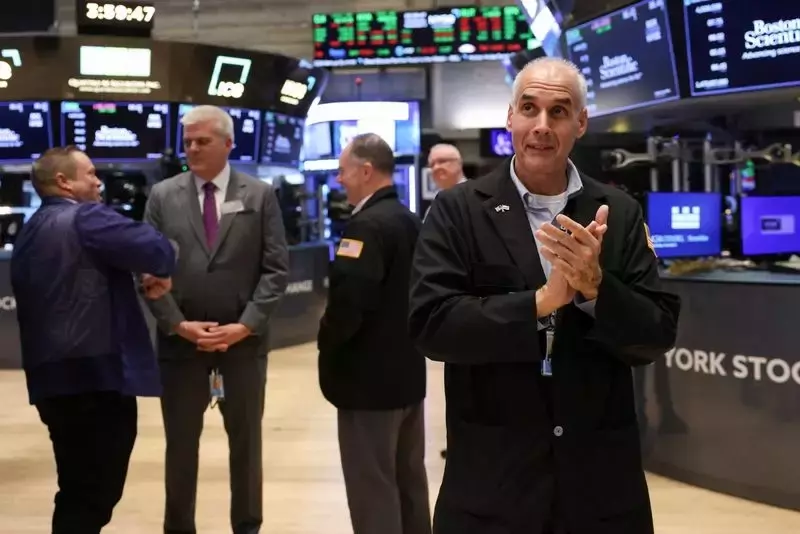U.S. stock index futures edged lower on Friday, taking a breather after a sharp rally powered by a sweeping Trump win and an expected interest-rate cut took the S&P 500 futures above the 6,000 mark for the first time. The immediate impact on Wall Street has been fairly muted as all three major indexes closed around record highs on Thursday.
Unleashing the Bull: How Trump's Triumph Ignites Wall Street's Resurgence
A Watershed Moment for the Markets
The U.S. stock market has experienced a remarkable surge in the aftermath of Donald Trump's unexpected victory in the presidential election. Investors have responded enthusiastically to the prospect of a more business-friendly regulatory environment and the potential for tax cuts and fiscal stimulus under the new administration. The S&P 500 futures have surpassed the psychologically significant 6,000 mark, a milestone that underscores the market's newfound optimism.This rally has been fueled by a combination of factors, including the Federal Reserve's decision to cut the benchmark interest rate by 25 basis points. Fed Chair Jerome Powell's assurance that the election outcome would not have a "near-term" impact on monetary policy has further bolstered investor confidence. The market's strong performance has been characterized by Michael Brown, a senior research strategist at Pepperstone, as "strong earnings and economic growth, coupled with the forceful 'Fed put', set to continue to propel the market higher over the medium term."Positioning for the Future: Investors Adjust Their Strategies
Investors have also been quick to adjust their strategies in the wake of the election results. The "cleaner positioning" after participants hedged their books pre-election, coupled with the expectations of Trump's anticipated tax cuts and fiscal stimulus, has helped to further fuel the upside in risk assets. This shift in investor sentiment has been a key driver of the market's recent surge.However, the potential impact of Trump's fiscally expansive spending plans and proposed tariff hikes on inflation has not gone unnoticed. The Fed chief has acknowledged that the central bank will need to begin estimating the impact of the new administration's proposals on its twin goals of stable inflation and maximum employment as they take shape. This could complicate the Fed's policy path, as traders have already trimmed expectations for rate cuts next year and bond yields have jumped to multi-month highs.Sector Spotlight: Navigating the Changing Landscape
The market's reaction to the election outcome has been uneven, with some sectors and individual stocks experiencing more pronounced gains than others. Chipmaker Nvidia, for instance, has seen its shares ease 1% in premarket trading, despite becoming the first company in history to surpass a $3.6 trillion in market value on Thursday.Meanwhile, the performance of U.S.-listed Chinese companies has been more muted, with investors seemingly unimpressed by the government's latest fiscal support measures. JD.com and Alibaba have both seen their shares decline, reflecting the broader uncertainty surrounding the implications of the new administration's policies on international trade and relations.The potential for a "Red Sweep," with Republicans maintaining control of both the House of Representatives and the Senate, has also captured the attention of investors. This scenario could make it easier for Trump to enact his legislative agenda, further shaping the market's trajectory in the months ahead.As the dust settles on the election, investors will continue to closely monitor the economic and policy developments that will undoubtedly shape the future of the U.S. stock market. The University of Michigan's preliminary consumer sentiment survey data for November and the upcoming remarks from Federal Reserve Board Governor Michelle Bowman will provide additional insights into the market's direction.You May Like

